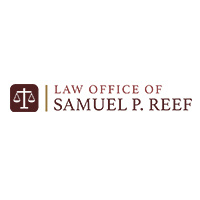Boston DUI-DWI Lawyer, Massachusetts
Sponsored Law Firm
-
 x
x

Click For More Info:
-
Adam P. Beck, M.D., Esq.
25 Marston St Suite 303 Lawrence, MA 01841» view mapAccident & Injury Law Legal Expertise You Can Rely On
By working with lawyers who are also doctors, clients can benefit from advocates who have a deeper understanding of their physical injuries, medical needs, and prognoses.
800-383-8491
Joseph Simons
✓ VERIFIEDI help people in all walks of life, from doctors to CEOs to blue-collar workers. Whoever you are, if you're facing criminal charges, everything else ... (more)
Christian T. Baillet
✓ VERIFIEDChristian T. Baillet is a practicing lawyer in the state of Massachusetts handling criminal defense matters.
Samuel P. Reef
✓ VERIFIEDSamuel Reef is a practicing lawyer in the state of Massachusetts. He received his J.D. from Suffolk University Law School in 1994. He currently works ... (more)
FREE CONSULTATION
CONTACTFREE CONSULTATION
CONTACTJoseph J. Goldberg-Giuliano
FREE CONSULTATION
CONTACTFREE CONSULTATION
CONTACTWilliam J. Hernon
FREE CONSULTATION
CONTACTFREE CONSULTATION
CONTACT Adam Beck Lawrence, MA
Adam Beck Lawrence, MA AboutAdam P. Beck, M.D., Esq.
AboutAdam P. Beck, M.D., Esq. Practice AreasExpertise
Practice AreasExpertise



